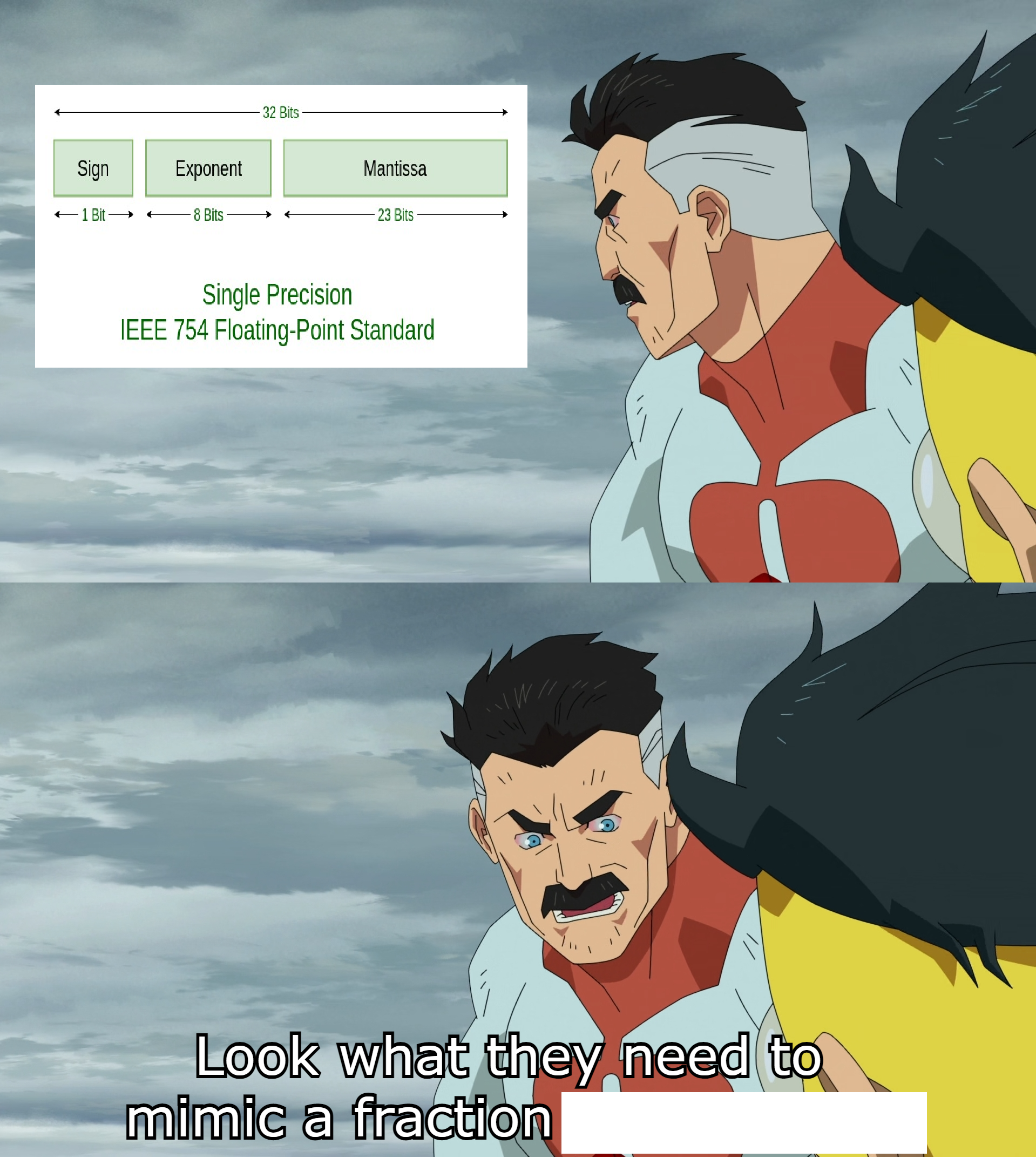this post was submitted on 02 Jan 2025
851 points (99.4% liked)
Programmer Humor
35276 readers
66 users here now
Post funny things about programming here! (Or just rant about your favourite programming language.)
Rules:
- Posts must be relevant to programming, programmers, or computer science.
- No NSFW content.
- Jokes must be in good taste. No hate speech, bigotry, etc.
founded 5 years ago
MODERATORS
you are viewing a single comment's thread
view the rest of the comments
view the rest of the comments

I've wondered why programming languages don't include accurate fractions as part of their standard utils. I don't mind calling dc, but I wish I didn't need to write a bash script to pipe the output of dc into my program.
I' assume its because implemenring comparisons can't be done efficiently.
You'd either have to reduce a fraction every time you perform an operation. That would essentially require computing at least one prime decomposition (and the try to divide rhe other number by each prime factor) but thats just fucking expensive. And even that would just give you a quick equality check. For comparing numbers wrt </> you'd then have to actually compute the floating point number with enough percesion or scale the fractions which could easily lead to owerflows (comparing intmax/1 and 1/intmax would amount to comparing intmax^2/intmax to 1/intmax. The emcodinglengh required to store intmax^2 would be twice that of a normal int... Plus you'd have to perform that huge multiplication). But what do you consider enough? For two numbers which are essentially the same except a small epsilon you'd need infinite percision to determine their order. So would that standard then say they are equal even though they aren't exectly? If so what would be the minimal percision (that makes sense for every concievable case? If not, would you accept the comparison function having an essentially unbounded running time (wrt to a fixed encoding lengh)? Or would you allow a number to be neither smaller, nor bigger, nor equal to another number?
Edit: apparently some languages still have it: https://pkg.go.dev/math/big#Rat
why couldn’t you compute p/q < r/s by checking ps < rq? if you follow the convention that denominators have to be strictly positive then you don’t even have to take signs into account. and you can check equality in the same way. no float conversion necessary. you do still need to eat a big multiplication though, which kind of sucks. the point you bring up of needing to reduce fractions after adding or multiplying also a massive problem. maybe we could solve this by prohibiting the end user from adding or multiplying numbers
It's very easy to overflow